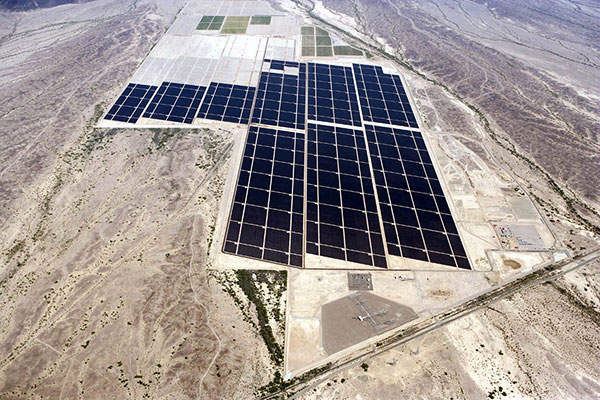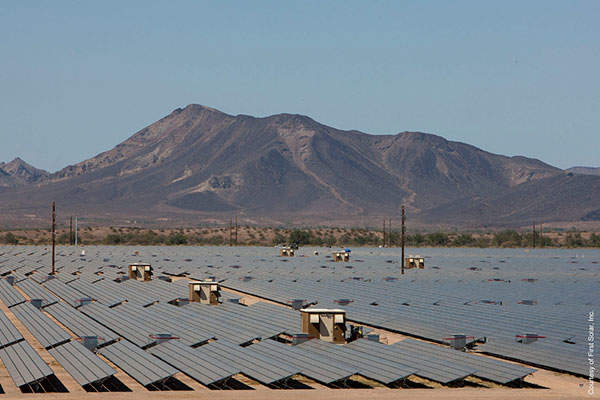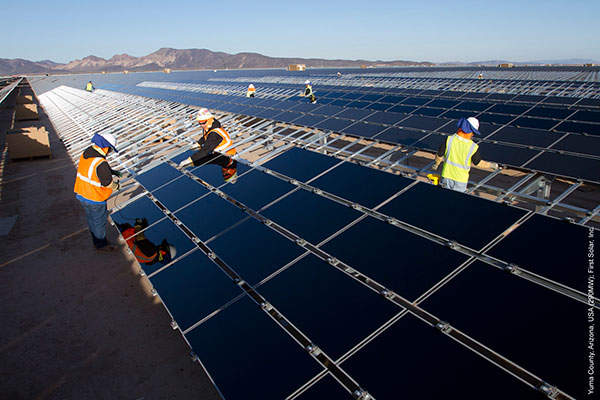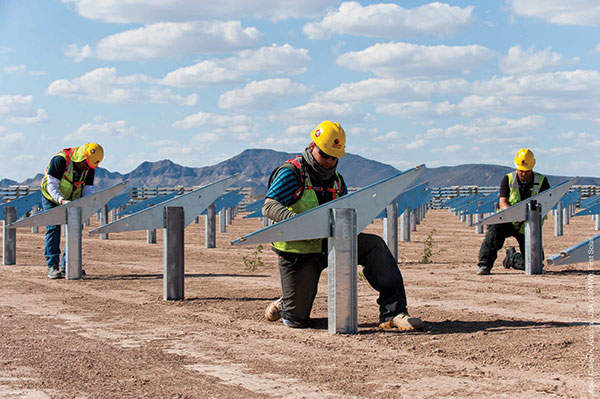Agua Caliente Solar farm is a 290MW photovoltaic (PV) power project located in the east Yuma County of Arizona, US. It is owned by NRG Energy and MidAmerican Energy Holdings and is currently the world’s biggest photovoltaic solar power plant.
The $1.8bn solar project was originally initiated by NextLight Renewable Power, which was acquired by First Solar in 12 July 2010. In August 2011, NRG Energy acquired the project from First Solar. MidAmerican purchased a 49% stake in the project in January 2012.
The solar farm generates enough electricity to serve around 225,000 average homes and will reduce 5.5 million metric tonnes of carbon dioxide emissions annually. Pacific Gas & Electric (PG&E) Company purchases the entire power generated by the plant under a 25 year power purchase agreement (PPA).
Agua Caliente was named ‘Project of the Year’ by Excellence in Renewable Energy awards in February 2012.
Agua Caliente solar plant makeup
The Agua Caliente solar farm is built on a previously distributed agricultural land, 65 miles on the White Wing Ranch. It was selected after an extensive research on the availability of solar resources, proximity of existing Hassayampa-North Gila 500kV transmission line adjacent to the site and current land uses. The project needed minimal new transmission infrastructure because of its strategic location.
Related project
Topaz Solar Farm, California, United States of America
Topaz Solar Farm is a 550MW photovoltaic (PV) solar power project being built in the east San Luis Obispo County, California.
The plant is fitted with more than five million advanced thin-film cadmium telluride (CdTe) PV modules, which annually produce approximately 626.2GWh of clean energy.
The PV modules generate electricity without releasing any emissions, waste or water, with minimal noise and cause a low visual impact; they will also have the smallest carbon footprint compared to conventional PV technologies. The panels will be recycled after their useful lifespan.
The project employs several power conversion station (PCS) vaults and 400 units of SMA’s Sunny Central inverter. Each PCS contains a pair of SMA inverters. The inverter is referred to as fault- ride-through technology, which employs dynamic voltage regulations technology. The new inverter technology supports and improves the reliability of the electric power system. Agua Calinte is the first solar power plant in the US to use this technology.
A new regional switchyard is also constructed at the site.
Development of Yuma County solar farm
The Agua Caliente solar farm is developed on 2,400 acres of farmland near the communities of Dateland and Hyder.
Work on the project was divided into two phases. The first phase has an installed capacity of 100MW, while the second phase has an installed capacity of 190MW, resulting in a total capacity of 290MW.
Construction of the Agua Caliente solar project phases
Construction of phase one started in late 2010 and was completed in early 2012. The first solar PV panels were installed in June 2011. Construction on the second phase of the project was completed in April 2014.
In January 2012, the project started commercial operations by generating 30MW of electricity to the grid. It exceeded 100MW of grid-connected power by spring 2012 and 200MW by the summer.
Contractors for the Arizona solar power facility
First Solar was the engineering, procurement and construction (EPC) contractor for the solar project. Under the EPC contract, the company provided thin-film PV modules, as well as looks after the operation and maintenance of the plant.
Financing of Agua Caliente solar farm
The US Department of Energy (DOE) finalised a $967m loan guarantee to support the construction of the solar project, in August 2011.







